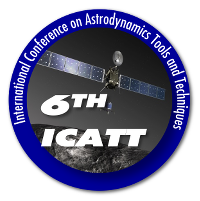Speaker
Mr
Marc Hirth
(Astos Solutions GmbH)
Description
Recent standardization efforts in Europe have led to the publication of the ECSS Control Performance Standard E-ST-60-10C and the ESA Pointing Error Engineering Handbook ESSB-HB-E-003, which are instrumental in defining a clear pointing error engineering methodology for ESA projects.
The necessity for such methodology gains in importance as current and future ESA missions, especially scientific and laser-communication missions, put more and more stringent pointing performance requirement on the spacecraft systems. As a consequence even small performance changes may not only lead to additional iterations of the design, but potentially result in prominent mission-critical changes in subsystems and equipment selection. The rapidly growing system complexity for such kind of missions complicates the situation even more.
Hence a systematic and user-friendly software tool that is capable of automating the pointing performance management process based on the standardized methodology and which replaces the conventional manual computation is largely beneficial and necessary. To complement and support dissemination of this pointing error engineering methodology, a software prototype called Pointing Error Engineering Tool (PEET) was developed and released under the ESA Software Community License.
PEET is designed as an extension to MATLAB and completely runs inside the MATLAB environment to exploit its computational features. It provides a graphical user interface implemented in Java suitable for building pointing systems and analysing pointing errors. The core of the PEET software which contains the mathematical algorithms for error computation is implemented using MATLAB classes.
The prototype software released in the end of 2012 (with several updates until 2015) was restricted to the “simplified statistical method” described in the ESA Pointing Error Engineering Handbook, i.e. results are based on the assumption that the central limit theorem is applicable and the total error follows a (nearly) Gaussian distribution. This assumption may lead to significant deviations from the actual result, in case dominant non-Gaussian error contributions exist.
This paper focuses on the improvements in the ongoing development of the prototype to a release version. The key update supersedes the mentioned restriction on Gaussian distributions and implements the so-called “advanced statistical method” described in the ESA Pointing Error Engineering Handbook. In particular, this implies that probability density functions of (arbitrarily correlated) random variable error contributions - rather than only fundamental statistical moments – are taken into account for an accurate level of confidence evaluation of requirements. The benefits of this approach will be highlighted by comparison of the results obtained with both methods.
In addition, a compliant generalization of the “statistical interpretation” concept in the ECSS Control Performance Standard is introduced which allows more flexibility in the definition of requirements and can help to avoid over-conservative budgets. By supporting script-based execution from MATLAB, the release version of PEET also directly supports its integration in a tool-chain, e.g. for optimization runs or parameter trade-off studies.
| Applicant type | First author |
|---|
Primary authors
Mr
Haifeng Su
(Astos Solutions GmbH)
Mr
Marc Hirth
(Astos Solutions GmbH)
Co-authors
Mr
Massimo Casasco
(European Space Agency)
Mr
Sohrab Salehi
(Rhea System for ESA)
Mr
Thomas Ott
(Airbus Defence and Space (former Astrium GmbH))

